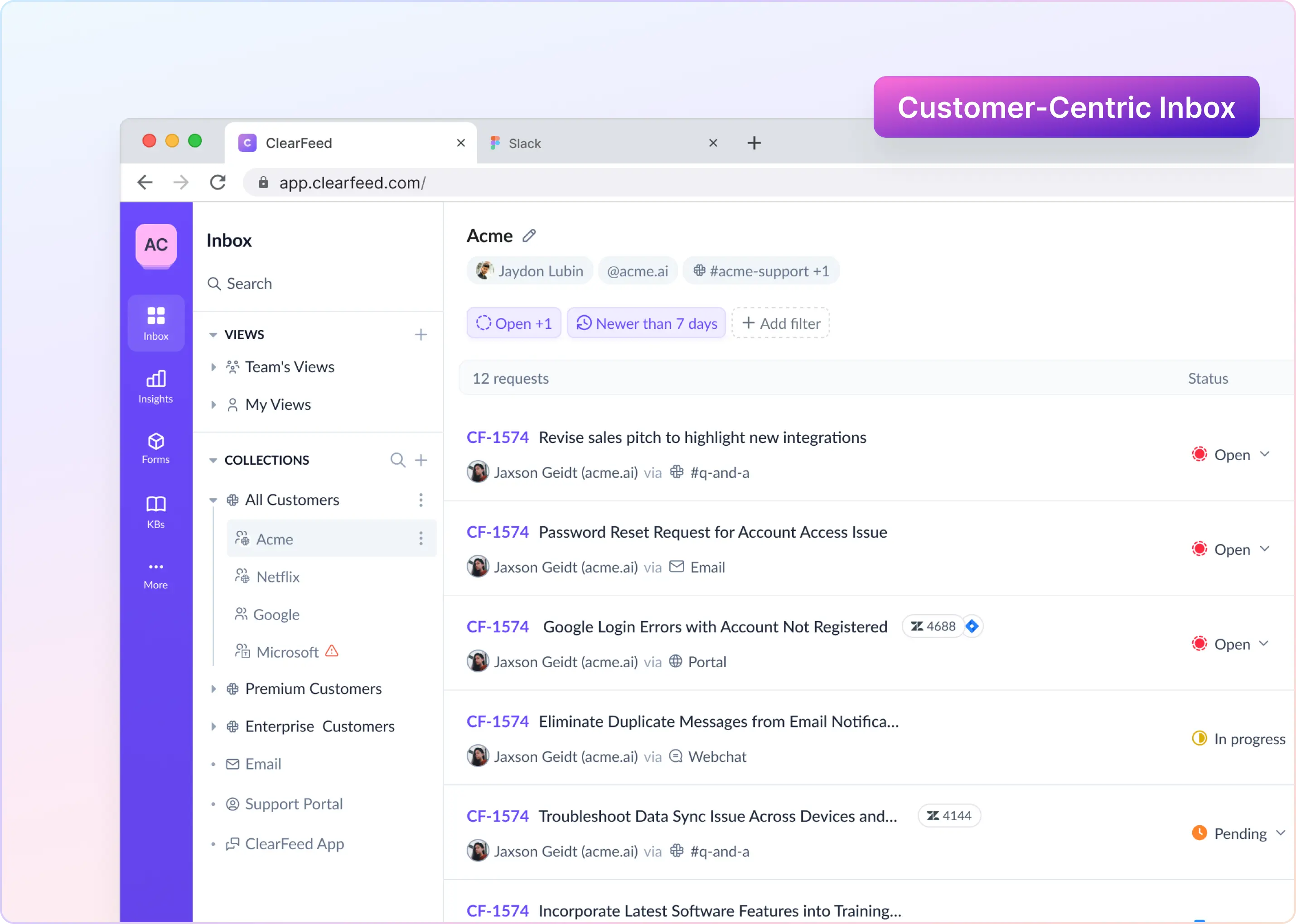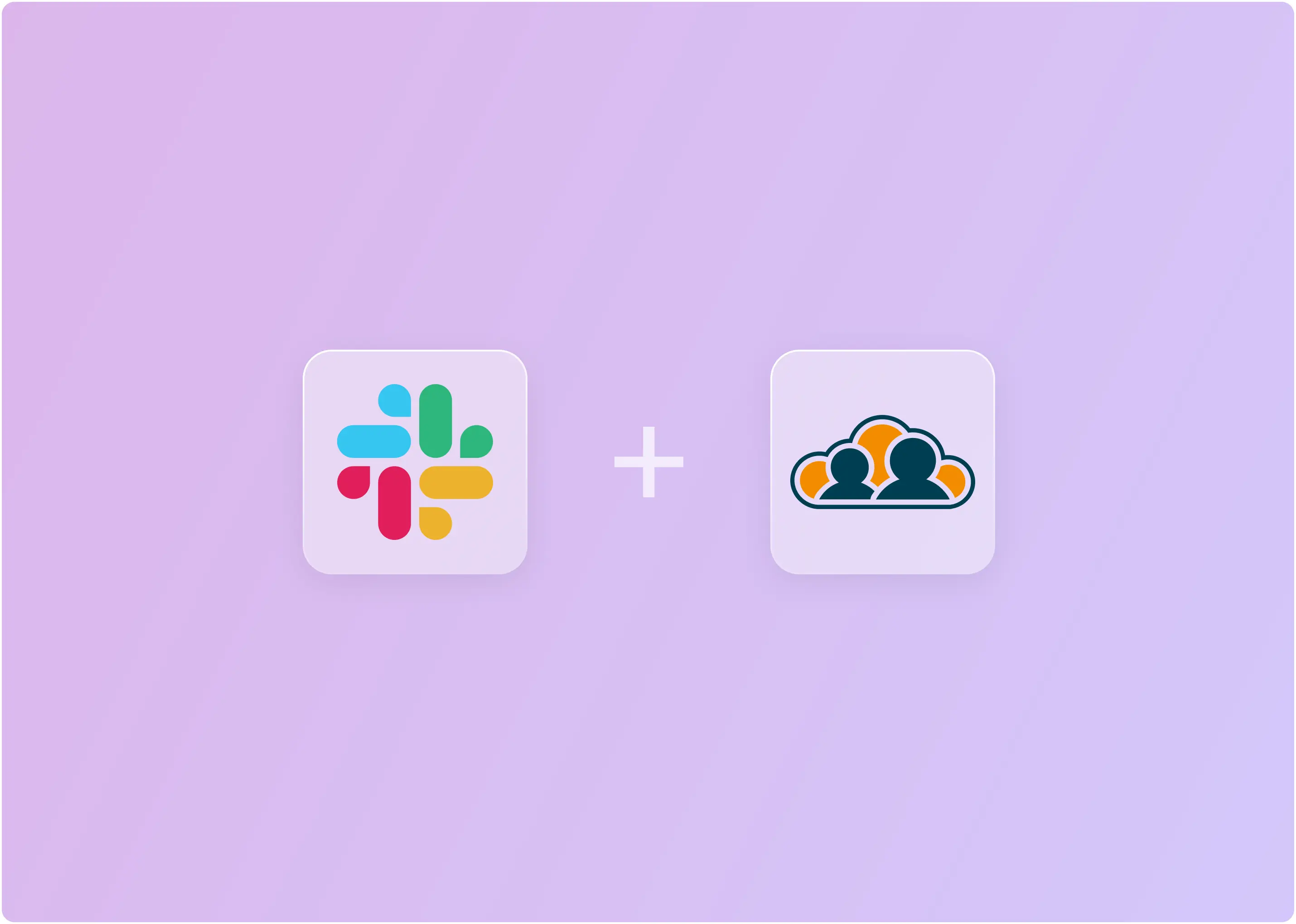Is your current IT service management (ITSM) tool falling short of your business needs? Or are you in the market for your first tool? In both scenarios, onboarding the right ITSM tool is a crucial decision that can significantly impact your business operations. Many organizations rush into choosing a solution only to find it doesn't meet their needs as well as they'd hoped.
A bad ITSM tool can be costly. It can cause slow workflows and delays that annoy employees and make it hard for IT leaders to show their value while still costing you money for features you don't even use. But finding the right one doesn’t have to be tricky. With a good plan, you can pick a platform that:
- Makes your service delivery more efficient
- Fits well with how your organization works
- Gives useful insights to keep improving
In this guide, we’ll show you the key things to think about when choosing an ITSM solution that really helps your business.
Seven Features to Look for in an ITSM Tool
1. Intelligent Ticket Routing Capabilities
Does your team handle dozens of support requests daily? Without a smart system, assigning each ticket to the right person quickly becomes chaotic and error-prone. Automated ticket routing transforms your workflow by directing tickets to the right place automatically. It saves your team time and minimizes mistakes.
When you're choosing an ITSM tool, look for one that routes tickets based on your defined rules. For example, if a ticket contains keywords like "server down" or "critical error," you'll want it automatically flagged as high priority and routed to your system administrators. Meanwhile, you can direct simpler requests, like password resets, to your help desk team.
You'll need more than just keyword matching, though. Your routing system should evaluate priority levels to ensure your team tackles critical issues first. Consider how each ticket impacts your business operations and urgency—a system outage affecting all your employees clearly needs faster attention than a single user's printer problem.
Your organization's needs are unique. What works for another company might not work for yours. Make sure your ITSM tool lets you customize routing rules and priority settings to match your specific requirements. You should be able to create custom fields, set up templates for common issues, and adjust priority levels based on your internal policies.
Let's say your company requires certain tickets to be approved before team assignment. You'll want an ITSM tool that is flexible enough to handle this workflow without requiring you to write complex code or have deep technical expertise.
You might also need different priority levels than other organizations. Perhaps a simple high, medium, or low system works for you, or maybe you need more detailed categories like "critical," "urgent," "normal," and "low." Your ITSM tool should adapt to whichever approach best serves your team.

With ClearFeed (a Slack-native ITSM platform), you can enable your IT team to automatically assign tickets to the first responder, to an entire team, or agents using a round-robin method. Our AI-driven system analyzes the availability of agents (on Slack) and can assign tickets based on their availability.
2. Customizable Workflow Rules
When you run a B2B organization, you'll quickly notice that different requests need different approval levels. For example, your helpdesk technicians can handle password resets independently, but when someone requests a software upgrade, you'll likely want a manager's approval first.
Implementing the right ITSM tool that automatically routes requests based on your predefined criteria will save you significant time. You won't need to funnel everything through the same approval chain, which means faster resolutions for your team and your customers.
You should also pay attention to automated escalation procedures. When you set these up, no request is overlooked. If your team hasn't resolved a ticket within your specified timeframe, your system automatically escalates it to a senior team member or specialist. This prevents small issues from growing into major problems.
Don't forget about SLA monitoring and real-time alerts. These service-level agreements represent your promises to customers, and you need to keep them. With the right ITSM tool, you'll receive alerts before tickets risk missing deadlines, helping you maintain customer trust and meet your commitments consistently. Look for a system that gives you this visibility—it's crucial for keeping your service standards high.

At ClearFeed, our intuitive builder can design and implement approval chains in minutes, not hours. You get a visual workflow editor that can help you set up escalation reminders, SLA breach notifications, commitment follow-ups, and auto-responses to customer requests. You can also enable out-of-office messaging and integration with external systems through webhooks.
3. Integrated Communication Features
When you invest in an ITSM tool, you're looking to streamline communication and speed up issue resolution. But if your support team has to juggle multiple platforms, you're undermining the very efficiency you're trying to achieve. What you need is a unified hub where your team can chat, share updates, and collaborate—all without switching between different applications.
Picture your current help desk workflow: Are your team members bouncing between Slack for instant messages, email for status updates, and a separate ticketing system for managing requests? This fragmented approach costs you valuable time and creates unnecessary complexity. By choosing an ITSM tool with integrated messaging, you'll bring all these essential functions together in one place, making your team's communication smoother and more efficient.

Thinking about integrations? Find everything you need in ClearFeed.
- Ticketing tools (Zendesk, Freshdesk, Jira Service Management, and full list here)
- Knowledge-base platforms (Notion, Confluence, Google Docs, Dropbox, and 95+ more)
- Email ticketing system
4. Role-based Access Control
When selecting your ITSM tool, prioritize features that simplify request management: customizable templates, role-based access, and field-level validation (the ability to set specific rules or criteria for individual fields within a form or ticket). Your tool should adapt to your team's exact needs, letting you create tailored forms for every situation—whether it's software requests, hardware issues, or password resets.
Take software request forms, for instance. You'll want to capture essential details like the requester's name, department, desired software, business justification, and any necessary approval steps. But here's where smart form design really helps: your ITSM tool should let you build these forms effortlessly through drag-and-drop functionality.
Want to make certain fields mandatory? Need conditional logic where selecting specific software triggers additional fields for licensing details? Your tool should handle these requirements smoothly. By creating these intelligent, purpose-built forms, you'll collect all necessary information upfront and save your team from the tedious back-and-forth that slows down request fulfillment.

For example, ClearFeed’s robust custom forms and fields enable you to tailor your data collection processes to specific needs easily. You can hide or unhide certain fields, set permissions for a given field, and do much more.
5. Real-time Analytics Dashboard
Your reporting needs are unique, just like your business. You'll want an ITSM tool that adapts to your changing business objectives, offering customizable reports and real-time dashboards that track the metrics that matter to you. Think of these dashboards as your command center—live snapshots showing exactly how your helpdesk is performing.
When you look at your dashboard, you should instantly get an overview of your team's pulse: how many tickets need attention, your resolution speeds, and any bottlenecks slowing down service delivery. By helping you spot patterns and recurring issues, you can tackle root causes instead of repeatedly fixing the same problems.
Different team members will need different insights. Your team leaders might focus on daily performance metrics, while your executive team wants a broader view of SLA compliance and overall resolution trends. You need an ITSM tool that lets you create targeted reports for each stakeholder, whether they need detailed operational data or high-level strategic insights.

With ClearFeed, you get AI-powered analytics that helps you view service metrics in real time. You can access metrics like ticket volume, resolution time, SLA breaches, and CSAT scores and break down the reports by agents, types of customers, and custom statuses.
6. Security and Compliance Features
As someone who is running ITSM, you must ensure that every action taken on a ticket is logged—like who opened it and who worked on it when it was resolved. If something goes wrong, you want to trace back and see who did what. This is where your ITSM tool steps in.
It should capture every single detail, not just the major actions, and also make it easy to review these logs. If they’re too cumbersome, they might not be very useful in practice for you.
But detailed logging is just the start. Not everyone on your team should have access to everything. For example, technicians should only see their assigned tickets, while managers might need broader access. This prevents unauthorized access to sensitive information.
Compliance adds another layer to consider. Every industry has its regulations, like GDPR or HIPAA. An effective ITSM tool helps generate necessary documentation to prove compliance and ensures that the organization is meeting legal requirements, which is essential to avoid penalties and maintain trust.

For example, ClearFeed's enterprise-grade security features include comprehensive audit logs and built-in compliance tools. Our platform is SOC2 Type 2-certified and GDPR-compliant. You can learn more about how we keep our customers secure here.
7. Self-Service Capabilities and AI Assistants
Ensuring quick resolution to common problems is essential to maintaining productivity. That’s why you need an ITSM tool that acts like a self-checkout lane at a grocery store, where users can handle their requests without needing direct assistance from support teams. It empowers users and can reduce the workload on the IT team.
You can look for features like intuitive ticket submission forms that users can easily fill out themselves to submit requests or report issues. Then there's the "Knowledge Base Access," and your ITSM should help users with a library of resources they can refer to to solve common problems on their own. It should include articles, guides, and FAQs and is great for reducing the number of repetitive tickets that the support team receives.

💡Still confused about how to find the right ITSM tool? We’ve listed the seven best ITSM tools for you to explore in 2025.
ClearFeed's AI-powered virtual agent automatically suggests relevant articles to users as they type their issues. Our natural language processing engine ensures users find the right solutions quickly, reducing ticket volume and improving resolution time.
Finding the Perfect Fit
Choosing the right ITSM tool is about more than checking off a list of features. It’s about finding a solution that seamlessly integrates with your organization’s workflows, empowers your team, and delivers the insights you need to keep improving.

So, are you ready to find the ITSM tool that truly meets your business needs? Start by evaluating your current pain points, understanding your team’s needs, and keeping an eye on the future. With the right tool in place, you’ll be well on your way to a more efficient, effective, and frustration-free service management. And if you would like to explore more about how ClearFeed can help you with your ITSM, get in touch with us today!



















